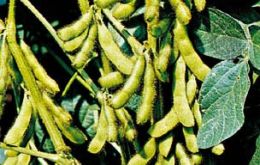MercoPress. South Atlantic News Agency
Stories for May 2008
-
Friday, May 9th 2008 - 21:00 UTC
Record foreign direct investment for Latinamerica in 2007

Foreign direct investment in Latinamerica reached 106 billion US dollars in 2007, overtaking the record 89 billion of 1999, according to the latest release from the United Nations Latin American Commission, CEPAL.
-
Friday, May 9th 2008 - 21:00 UTC
Bolivian president accepts challenge of recall referendum
Bolivian President Evo Morales agreed to a nationwide recall referendum, gambling that Bolivians will re-elect him after just two years in office and confirm support for his plan of reforms which has been condemned by some of the country's richest provinces.
-
Friday, May 9th 2008 - 21:00 UTC
Almost 60% of Chilean moms during 2005 were single
Almost 60% of Chilean women who had children during 2005 were single moms, the Chilean Institute of Statistics, INE reported this week. INE noted that most of the single mothers were between 20 and 24 years old.
-
Friday, May 9th 2008 - 21:00 UTC
Citigroup wants to sell U$S 400 billion of assets in three years
The United States banking giant Citigroup announced it wants to sell 400 billion US dollars of assets over the next three years as part of its bid to return to profit. It has 500 billion US dollars of “legacy assets” that it wants to reduce to 100 billion
-
Friday, May 9th 2008 - 21:00 UTC
IMF warns inflation risks have become a global challenge

Prospects for continued relatively strong growth in emerging and developing economies suggests that demand growth for energy and commodities will remain solid, even as global growth is slowing, according to the International Monetary Fund, IMF, First Deputy Managing Director John Lipsky.
-
Friday, May 9th 2008 - 21:00 UTC
Sugar cane becomes Brazil's second energy source
Sugar cane and cane-based ethanol became a more important energy source than hydroelectric power in Brazil's overall energy production last year, topped only by petroleum and oil products according to a report from the government's energy planning agency, EPE.
-
Friday, May 9th 2008 - 21:00 UTC
“Pompeii scenario” forecasted for Chile's Chaitén volcano
Chilean authorities are considering the possibility that Chaitén volcano in continuous eruption for over a week might collapse and release a torrent of red-hot pyroclastic material (burning gas and rocks) that could devastate the surrounding area.
-
Friday, May 9th 2008 - 21:00 UTC
Brazil's April annualized inflation climbs to 5.04%
Brazilian Consumer Prices Index experienced its biggest increase in four months in April, 0.55% (up from March's 0.48%) because of higher food costs, according to the Brazilian Geography and Statistics Institute, IBGE.
-
Thursday, May 8th 2008 - 21:00 UTC
Top UN economist blasts EU for promoting bio-fuels

European efforts to promote bio-fuels should be rethought because of the contribution they have made to rising food prices, according to Jeffrey Sachs, a top economic advisor to the United Nations.
-
Thursday, May 8th 2008 - 21:00 UTC
Climate conditions could reduce Argentina's soybean

Bad weather may reduce Argentina's soybean crop below previous forecasts this year but the precise outlook is still unclear, Hamburg-based oilseeds analysts Oil World said this week.
